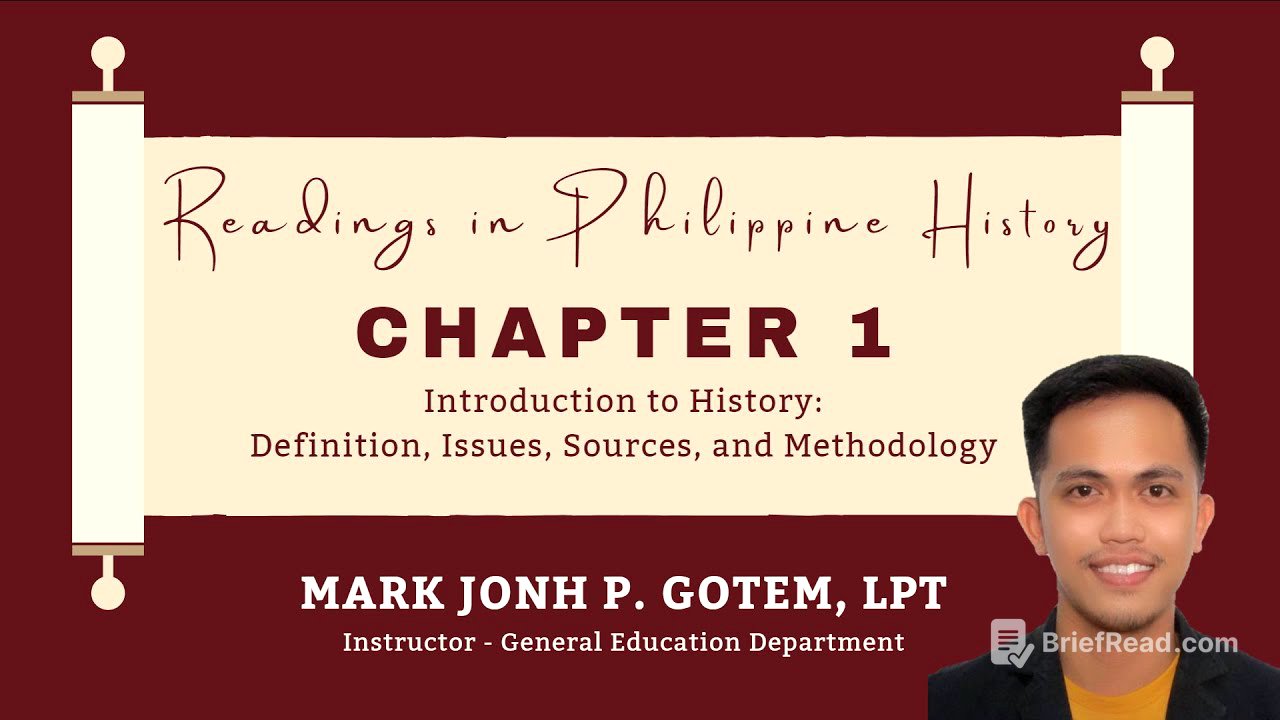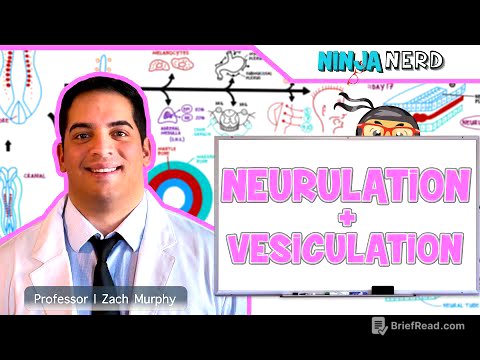TLDR;
This video by Teacher MJ introduces the study of history, covering its definition, issues, sources, and methodologies. It emphasizes understanding history as an academic discipline, applying historical methodology, critically assessing historical evidence, and appreciating history's importance in Philippine social and national life. The lecture touches on the evolution of historical study, the importance of written and non-written sources, and philosophical schools of thought like positivism and postcolonialism.
- History is more than just a study of the past; it's a continuous dialogue that shapes societies and institutions.
- The definition of history evolved from relying solely on written documents to include oral traditions, artifacts, and collaboration with other disciplines.
- Historiography, the study of how history is written and interpreted, is crucial for understanding historical facts and their context.
- Philosophical schools of thought, such as positivism and postcolonialism, influence historical interpretation.
Introduction to History [1:14]
The chapter introduces history as a discipline and narrative, moving beyond the common definition of history as merely the study of the past. It aims to address several issues in history and the role of the historian as an interpreter of facts and evidence in constructing historical narratives. The learning objectives include understanding history as an academic discipline, applying historical methodology, examining historical evidence, and appreciating the importance of history in the Philippines' social and national life.
Definition of History [3:28]
History is defined beyond a simple study of the past, serving as a lens to understand human experiences, societal developments, and cultural transformations. The term "history" comes from the Greek word "historia," meaning knowledge acquired through inquiry and investigation. This involves active questioning and systematic exploration, highlighting the importance of asking "why." History is also understood as an account of the past of a person or group, based on written documents and historical evidence.
History as an Academic Discipline [7:27]
History's importance as an academic discipline grew as scholars recognized the value of systematically studying and interpreting past events, societies, and human actions. Traditionally, historians focused on writing about the lives of important individuals and significant events like wars and revolutions. The traditional view was encapsulated in the mantra "no document, no history," emphasizing the role of written records in preserving and reconstructing the past.
Evolution of Historical Sources [10:08]
History expanded to include valid historical sources beyond written documents, such as oral traditions, epics, songs, artifacts, and architecture. This shift acknowledges that restricting historical evidence to written forms discriminates against social classes and indigenous groups not typically recorded in government documents. The change made history more inclusive, leading to collaboration with auxiliary disciplines like archaeology, linguistics, and science. Archaeologists use artifacts, linguists trace historical evolutions through language, and scientists analyze genetic patterns to understand human societies.
Questions and Issues in History [13:24]
History has evolved into a complex and dynamic discipline that addresses questions such as "What is history?" and "Why study history?". Historiography, the study of the history of history, examines how history has been written, recorded, and interpreted over time. It enables students to gain a deeper understanding of history by exploring the methods, perspectives, and interpretations that have shaped the discipline.
Philosophical Schools of Thought: Positivism vs. Postcolonialism [17:54]
Positivism, emerging in the 18th and 19th centuries, requires empirical and observable evidence before claiming knowledge as true, aligning with the "no document, no history" mantra. Positivist historians are expected to be objective and impartial. Postcolonialism, which emerged in the early 20th century, focuses on telling the history of nations and criticizing the methods, effects, and ideas of colonialism. Postcolonial history reacts to colonial narratives, addressing the accusation that history is always written by victors, and seeks to reveal the truth through thorough historical investigation.









